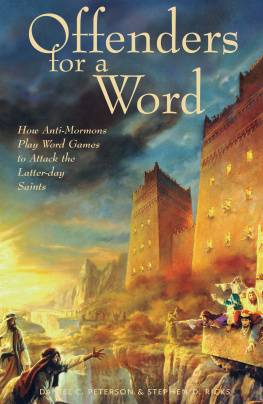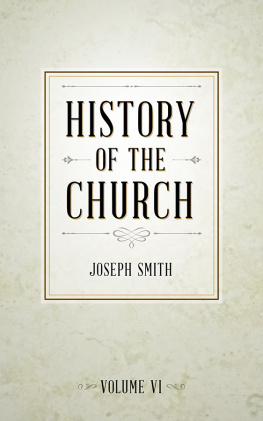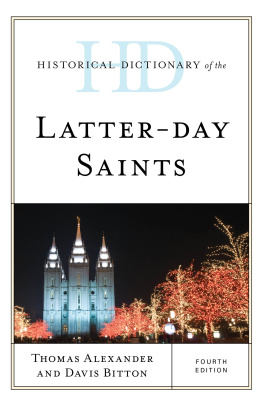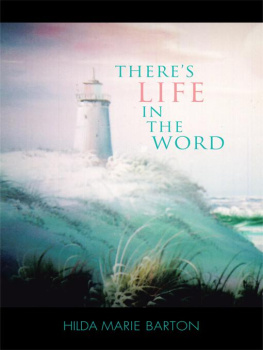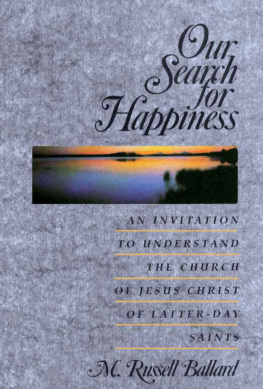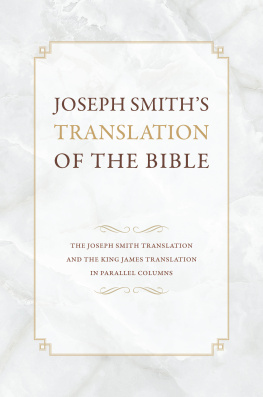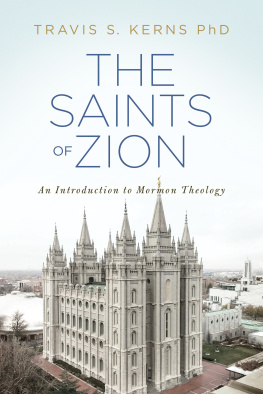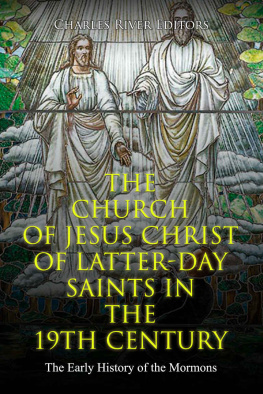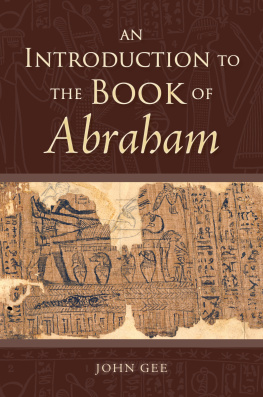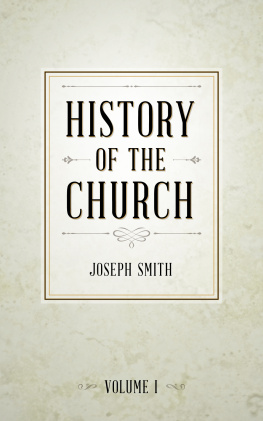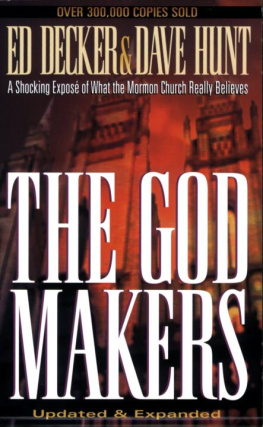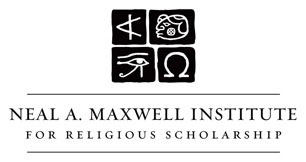Offenders for a Word
How Anti-Mormons Play Word Games to Attack the Latter-day Saints
Daniel C. Peterson, Stephen D. Ricks
1992 Daniel C. Peterson and Stephen D. Ricks.
Neal A. Maxwell Institute for Religious ScholarshipBrigham Young UniversityAll rights reservedPrinted in the United States of America
The views expressed in this article are the views of the author and do not necessarily represent the position of the Maxwell Institute, Brigham Young University, or The Church of Jesus Christ of Latter-day Saints.
Introduction
Daniel C. Peterson, and Stephen D. Ricks
The somewhat cryptic title of this workOffenders for a Wordcomes from the twenty-ninth chapter of the book of Isaiah, a chapter that is not only replete with prophecies of the restoration of the gospel and the coming forth of the Book of Mormon, but with predictions of the kind of opposition that would greet the latter-day work. Much of this opposition, as we are convinced and attempt to show in the pages that follow, rests upon the manipulation of language, upon illegitimate semantic games that truly make innocent people "offenders for a word."
While we are confident that our conclusions are fully justified by the evidence as well as by reason, we are aware that these conclusions may seem controversial to some of our readers. In order to avoid the possible suggestion of tendentiousness in our renderings of early Christian materials, we have generally followed standard English translations of these sources, rather than providing our own. To the best of our ability, we have followed the plain sense of these, as well as other source that we cite, although we are aware that other interpretations are possible. Given the very large number of references that we cite in the course of this work, it is inevitable that some unintentional errors may have crept in. We feel confident, however, that such errors as there might be have had no effect on the argument.
This book has taken many years, moving by fits and starts, to reach publication. Many people have helped us along the way. We wish to thank Ronald E. Taylor and our colleague Prof. Dilworth B. Parkinson, who stepped in to save an early version of the book from a disastrous computer failure. Robert L. Durocher, John Gee, and Matthew Roper supplied useful information. Adam Lamoreaux and Gaye Strathern did yeoman service in reading portions of the text and in checking many of the references. Deborah D. Peterson was supportive in many ways, direct and indirect. Shirley S. Ricks helped in getting the material into a publishable format, as did Melvin J. Thorne. Curtis Taylor and Stan Zenk, of Aspen Books, were a pleasure to work with. We also express our gratitude to Reverend Stephen Hoekstra, of Veil, Colorado, and Reverend Henry F. Fingerlin, of Littleton, Colorado, whodoubtless unintentionallyprovided some of the inspiration for our writing. Though unsympathetic to our position, Reverend H. Jeffrey Silliman, of Salt Lake City, offered useful comments on an early draft.
We dedicate this volume to our wives, Deborah and Shirley.
Is Mormonism Christian? An Investigation of Definitions, part 1
Daniel C. Peterson, and Stephen D. Ricks
"When I use a word," Humpty Dumpty said, in rather a scornful tone, "it means just what I choose it to meanneither more nor less."
"The question is," said Alice, "whether you can make words mean so many different things."
"The question is," said Humpty Dumpty, "which is to be masterthat's all."
Theologians do not, generally, ask other theologians if they are heretics. Most people are too well aware of the subjective nature of such designations to rely on a person's self-description in this manner. Very few men and women, we all realize, would choose to describe themselves as "heretics" or "heterodox," except perhaps in an ironic vein. On the other hand, we routinely askcertainly we can at least imagine ourselves askingwhether some living or historical person is a Christian, or a Jew, or a Buddhist, or a Muslim. Hospital admission forms and military induction papers, to choose two illustrations from among many, commonly ask for precisely such information, just as they inquire about weight and home address and full name. Furthermore, we seem to expect that the answer given to this question"Of what religion are you?"conveys objective truth, that it depends not on the position and preferences of some other individual or group of individuals empowered to accept or reject it, but on the simple, straightforward facts of the case. If the patient in Room 3458 has identified herself as Catholic, a priest will be called in when necessary. If Private Roth says he is a Jew, that fact will be noted on his dog tags. We do not see these matters as subject to debate or prey to controversy, any more than we would normally consider weight, home address, or full name questions for dispute. That Isaac Newton was a Christian seems as objectively valid a judgment, and as universally acceptable a claim, as that he formulated the laws of gravity or lived in early eighteenth-century England.
There are voices today, howeverinsistent and often loud voiceswho would make of the designation "Christian" a judgment no more objective, no more universally acceptable and agreed upon, than the verdict of "heresy." Indeed, these accusing voices would apply the terms "heretic" and "non-Christian" according to rules of their own choosing, making them virtual synonyms. This is strikingly evident in the recent fashion, among certain circles, of denying that Mormonism is Christian. Of course, these critics would not gladly admit that their denial of Mormon Christianity rests upon subjective grounds; they claim instead to issue their judgment on the basis of cold, hard, objective facts, submitted to rigorous, value-neutral analysis.
The campaign of which we speak is a literal one and not merely our own sensationalistic metaphor. It has its rallies, its enthusiastic volunteers, and its professional organizers and cheerleaders. It uses all the media of print, radio, and television to publicize its point, and has produced a flood of newspapers, pamphlets, newsletters, and books. Some few years ago, for example, a Houston-based organization seeking contributions to fund a "Christian" radio station in Provo, Utah, published a pamphlet entitled "KEYY: A Missionary Opportunity." Attempting to arouse its audience to the magnitude of the challenge posed by Mormonism, the pamphlet announced that "there are seven... counties in Utah with no known Christians! (There are more Christians per capita in India than in the state of Utah.).... This is an amazing opportunity to penetrate the darkness!"
On 25 July 1986, the vocal anti-Mormon J. Edward Decker and a contingent of his followers even attempted to present a petition to leaders of The Church of Jesus Christ of Latter-day Saints, demanding that Mormons cease calling themselves Christians. (Unfortunately for the Deckerites, Church offices were closed for the long Pioneer Day weekend. Richard Baer, one of Decker's lieutenants, was finally able to deliver the petition on 8 August 1986.) Nearly 21,000 people had signed the petition by that date, and the drive was intended to continue.
Ed Decker and his friends do not, of course, seriously expect the Latter-day Saints or their leaders to "concede" that they are not Christians. (Church spokesman Jerry Cahill, asked what would be done with the petition and its accompanying documents, replied rather cryptically: "They will receive the attention they deserve, I suppose.") The effort, therefore, seems to have had one or both of the following goals: (a) to generate publicity for the accusation that Latter-day Saints are not Christians, or (b) simply to embarrass the Mormon Church.

